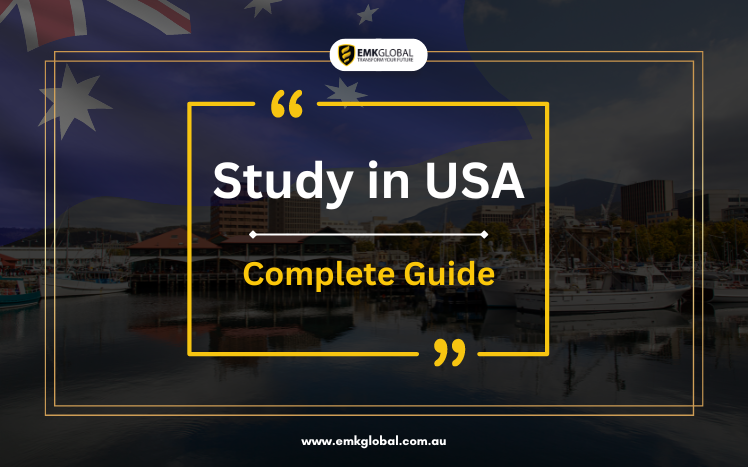Introduction
With over a million students choosing to expand their knowledge and experience abroad by enrolling in American colleges and universities, the USA is home to the biggest number of international students worldwide. International students make up approximately 5% of all enrolled students in US higher education, and the percentage is rising. The United States of America has made significant progress in international education since the mid-1950s, when the number of enrolled foreign students was around 35,000.
The education system in USA
US universities are primarily divided into public and private institutions, and both offer top-notch education to foreign students wishing to study there. They receive funding from the state government or from private donors like people and businesses.
Moreover, these universities fall under the following categories:
- Public IVY League Ivies
- Philosophy of liberal arts
- Specialized organizations
- Universities and colleges with land grants
- Institutes with a strong research focus
Levels of study available in the USA
There are following levels and their duration for study in the USA
| Levels | Duration |
| Associate Degree | 2 Years |
| Bachelor’s Degree | 2-4 Years |
| Master’s Degree(Professional) | 1-3 Years |
| Master’s Degree(Academic) | 2 Years |
| Doctorate Degree(Ph.D) | 5-8 Years |
Top Bachelor courses to study in USA
There are two-year undergraduate programmes and four-year undergraduate programmes offered by US universities for students to study in the country. Typically, the two-year curriculum is split into two halves, such as an Associate of Arts (A.A.) degree and an Associate of Science (A.S.) degree. This two-year degree curriculum gets you ready for a four-year course of study at an American college or university.
- Computer science and engineering
- Psychology of Business
- Journalism and Communication
- Sciences of Biomedicine
- Humanities and social science
Intakes to study in USA
| Intakes to study in USA | Student Application deadline | |
| 1- | January Intakes | August |
| 2- | May Intakes | March |
| 3- | September Intakes | December |
List of required documents
These are the documents required when applying for the USA student Visa
- A copy of your passport
- Resumé
- Transcripts or certificates from high school (when applying for undergraduate courses)
- Three recommendation letters and entrance exam scorecards (SAT, ACT, GRE, GMAT, MCAT, LSAT)
- Test results for English language proficiency (IELTS, TOEFL, PTE, C1 Advanced)
- Statement of Purpose Certifications of Achievement (if any)
- Verification of Funds copy of Application Confirmation
Student Visa application process to study in USA
Your age and the purpose of your visit to the US will decide the kind of USA student visa you need. Below is a summary of the three types of student visas for the United States and the requirements for each.
- F-1 visa: The most popular kind of visa for foreign students wishing to pursue academic courses.
- M-1 visa: Students who elect to pursue vocational courses are eligible for this type of visa.
- J-1 visa: This type of visa is obtained by foreign students who take part in exchange studies.
In order to pursue their studies in the United States, foreign students must first apply to one of the US colleges or universities that have been approved by the Student Exchange Visitor Programme (SEVP). A Form I-20 will be sent from the international student office of the relevant institute upon acceptance and payment of the SEVIS fee. The form that the admitting university issued must be brought to the US embassy for the visa interview in order to receive a student visa for the United States. Students arriving in the USA at a port of entry must also produce the same documentation.
We can customize a visa file for you. Feel free to contact us
Cost of studying and living in the USA
- International students studying in the United States are expected to pay between $30000 and $360,000 a year on average for living expenses; however, this may differ from student to student depending on a variety of circumstances.
- An foreign student studying in the United States would require between $1000 to $3000 per month to cover living expenses, lodging and board, food, transportation, textbooks, weather-appropriate attire, and entertainment.
- The average annual tuition for US institutions varies depending on the course.
- The approximate annual tuition for courses in the arts and engineering will be between $15,000 and $55,000, while the approximate annual tuition for courses in medicine and law will be between $25,000 and $68,000.
Conclusion
The USA has long been seen as the crown jewel of higher learning. The United States of America is incredibly popular among international students, who choose to study there because of its captivating educational atmosphere and amazing part-time jobs. According to reports, the United States of America is home to the greatest number of international students worldwide. It is one of the best facts to study in the USA that there are approximately 5% international students among all students in the nation.






